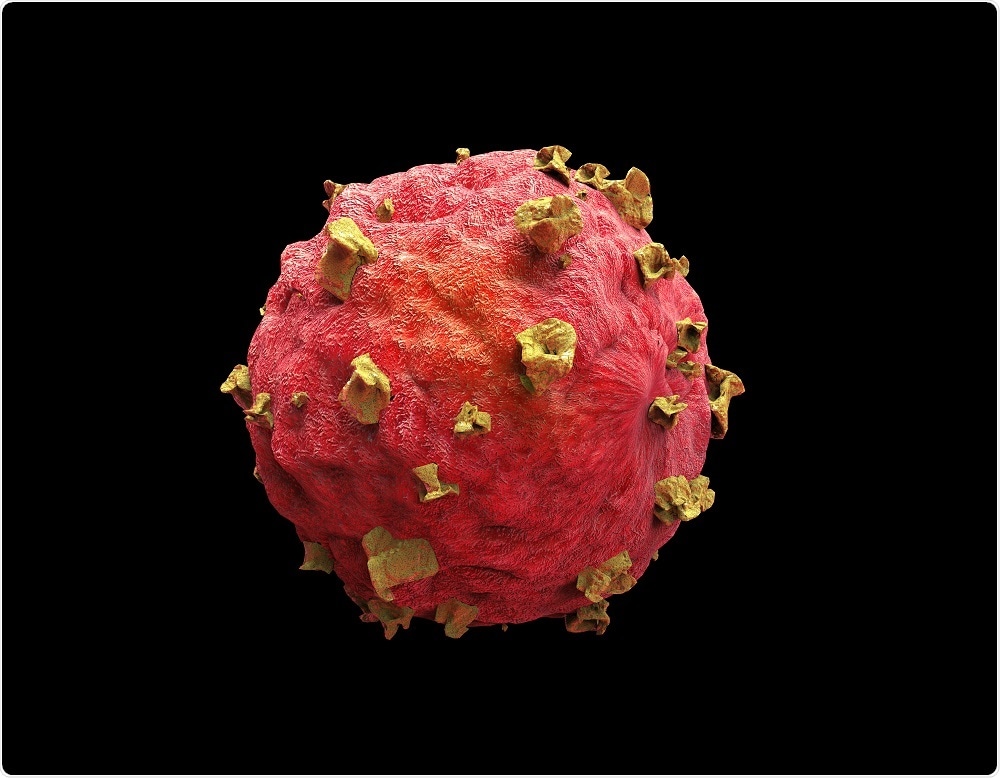
Genomics study reveals five genes linked to treatment resistance in prostate cancer
A new genomics study has found that men are three times more likely to die from prostate cancer if they possess mutations the retinoblastoma 1 (RB1) gene. The researchers also found that men with the mutation were seven times more likely to relapse than men without the mutation.
The study, which was published in the journal Proceedings of the National Academy of Sciences of the United States of America (PNAS) on May 2019, is the largest of its kind.
 Giovanni Cancemi | Shutterstock
Giovanni Cancemi | ShutterstockThe study “really got under the bonnet of prostate cancer to understand the ‘engine’ driving tumor growth and explore how a wide range of genes affect the disease and its response to treatment” said Professor Johann de Bono, one of the authors of the study.
“We identified one particular genetic mutation that seems to indicate that tumors are going to be very aggressive and that the affected men need the most intensive treatment we have available.”
“Our research could also open up various new approaches to prostate cancer treatment and offers the intriguing suggestion that some patients could benefit from immunotherapy alongside an existing breast cancer drug,” de Bono explained.
‘RB1 had the strongest association with poor outcome’
The retinoblastoma gene, also called the RB1 gene, is responsible for making a protein called retinoblastoma protein (pRB). The retinoblastoma protein is a tumor suppressor, which means it regulates cell growth and inhibits a cell’s ability to divide too quickly or too often.
Other functions pRB include interacting with other proteins to influence the survival of cells, as well as apoptosis (organized cell death), and differentiation (the process of maturation from a stem cell to a mature, functional cell in the body).
A number of cancers have been associated with genetic changes (mutations) in the RB1 gene. Retinoblastoma, a rare type of eye cancer often seen in early childhood, bladder cancer, lung cancer, and in some cases skin and bone cancer are just some of the conditions associated with mutations in the RB1 gene.
In relation to prostate cancer, the new study states:
The study used 429 patients who had undergone a biopsy. With some patients having multiple biopsies, 444 prostate, lymph node, bone, liver, and lung biopsy samples were used for whole-exome sequencing. 332 tumors were also used for RNA sequencing.
Whole-exome sequencing and RNA sequencing are two processes that are used to detect genetic variations in DNA and the amount of RNA (an acid that carries instructions to DNA to control the creation of proteins) respectively.
It was found that ERG, ETV1, TP53, PTEN, and RB1 were the genes “most commonly altered” in advanced prostate cancer cases.
However, changes in the BRCA1, BRCA2, and ATM genes were not associated with changes in the time patients needed to be on androgen receptor signaling inhibitor (ARSI) therapy or their overall survival.
Mutations in the SPOP gene were found to have associations with patients needing ARSI treatment for longer periods of time, but no survival benefits were found.
Changes in the androgen receptor gene AR and TP53 genes were linked to shorter ARSI therapy times, but again had no associations with overall survival rates.
Some mutations were 'co-occurring or mutually exclusive'
Mutual exclusivity was found between changes in genes in the ETS family and between changes in ERG, SPOP, or FOXA1, “which represent distinct genomic subsets of prostate cancer.” Co-occurring changes in genes CDK12, CDK4 and CCND1 were also linked to possible immune activity against tumors.
The discoveries made by this study suggest that clinical trials with a CDK4/6 inhibitor, which is used in certain breast cancer treatments, may be effective in prostate cancer when used in combination with immunotherapy.
The study concludes that RB1, in particular, is the molecular factor linked to the poorest clinical outcomes, and stresses that more research needs to be done into the resistance to therapy caused by the loss of the retinoblastoma protein and into new therapies that can target this loss.
Source:
Abida, W., et al. (2019) Genomic correlates of clinical outcome in advanced prostate cancer. PNAS. doi.org/10.1073/pnas.1902651116.






















.png)












No hay comentarios:
Publicar un comentario